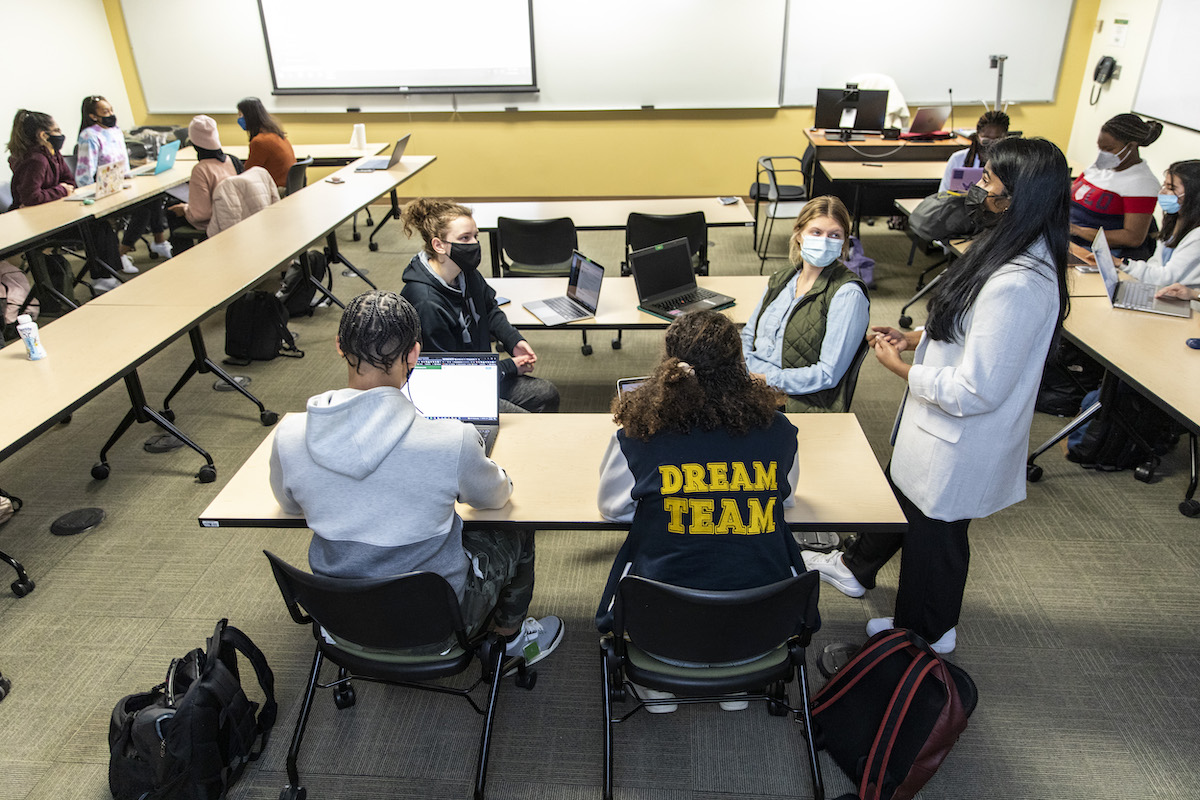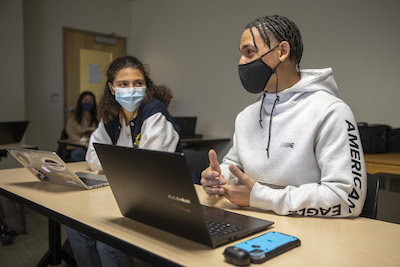
Zainab Samsudeen, a sophomore majoring in graphic design and a George Mason University Honors College student, is the first in her family to go to college. She was thrilled when she learned that the Honors College was offering a class specifically designed to learn about the variety of first-generation college students and the challenges they face.
So far, Samsudeen has found that the class is a safe place for first-generation students to openly discuss their experiences.
“When the class popped up, I just knew I wanted to take it,” Samsudeen said. “As a first-generation student, it was important to me to learn about other people’s first-generation experiences. Learning about what other people have gone through to get to college has been inspiring.”
Samsudeen is far from alone in her experience of being a first-generation student at Mason. Roughly 40% of Mason students identify as being the first in their families to go to college. Mason’s First Gen + Center serves as an accessible starting point for students and their families to understand and connect with university resources. Knowing the importance of first-generation students to Mason, Tharuna Kalaivanan, a doctoral student in sociology, created a section of HNRS 131 Contemporary Social Issues dedicated to learning about their experiences.

“In class, we’re looking at things like race, ethnicity, socioeconomic status and other forms of identity, and how that shapes their experiences,” said Kalaivanan, who is also a first-generation college student. “We examine and discuss the difficulties this diverse group of first-generation college students face and also some of the key perspectives that they bring into the classroom.”
Kalaivanan started the 25-student discussion-based class with an examination of the layered definition of a first-generation student, then moved on to explore the issues navigated by undocumented students. Kalaivanan emphasizes small-group discussions, research, and student-led discussions. At the end of the course, students will be expected to come up with their own definition of what it means to be first-generation.
“For the final assignment, they have freedom in how they make their presentations, whether that means a documentary, a podcast or a journal article format,” Kalaivanan said. “I wanted to make sure research reached beyond that academic side and that can mean working within different mediums.”
Shruti Sekar, an Honors College junior majoring in computer science, said that while she’s not a first-generation college student, she was curious to learn about their perspectives and better understand some of her friends. She appreciates that the class incudes small group discussions and student-led discussions.
“It’s always exciting and engaging to hear other students’ ideas and the questions they ask,” Sekar said.
Phillip Dickey, an Honors College sophomore majoring in computer science, said that he’s
“hoping that learning more about first-generation students, along with some of the tricks of the trade that are commonly known by students from families with college backgrounds, will help me in my journey."
Maya Cea-Lavin, an Honors College sophomore majoring in psychology, said that the ultimate lesson she’s learning from this class is that some of her fellow students may have faced and continue to face more difficulties than she did in getting to and remaining in college.
“This class reminds me that it’s important to respect people because you never know what’s going on in their lives,” Cea-Lavin said.
